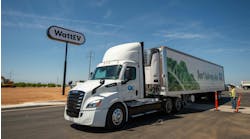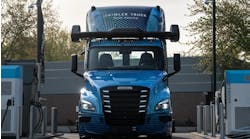As car and truck OEMs roll out an ever increasing number of hybrid and all-electric vehicles, the need for a national recharging infrastructure will become more critical. That’s why Ford Motor Co., among others, is beefing up its efforts to help cities and utility companies craft electric vehicle (EV) infrastructure strategies to help foster sales of electric vehicles (EVs).
“As more and more electric vehicles come to market, it's incredibly important that cities develop action plans including infrastructure development and permitting solutions to ensure these vehicles are a viable solution for citizens," said Mike Tinskey, Ford's manager of vehicle electrification & infrastructure.
"We’re going to continue our outreach [efforts] with cities across the country to spread best practices and work with multiple partners including local utilities, auto manufacturers, technology companies and others to support a successful integration of electric vehicles,” he added.
Tinskey said those “best practices” include:
- Adopting utility-rate structures that encourages "off-peak" or nighttime EV charging to minimize demand on the existing electric grid
- Streamlining permitting and inspection processes to support customer and commercial EV infrastructure installation
- Establishing integrated advisory committees with participation from electric utilities, vehicle manufacturers and dealers, municipalities, EV customers and local coalitions
- Using urban planning to optimize public/commercial EV charge locations
- Offering infrastructure incentives to offset customer costs for hardware/installation
“Our electric grid has plenty of capacity to support electric transportation,” Tinskey stressed. “ The key for local utilities is to offer incentives so EV customers are encouraged to charge during the nighttime hours when plenty of capacity is available.
“Additionally, at a local level, we are encouraged that many cities are taking an urban-planning approach to public charge station locations – which will result in locations that are used more often and an efficient use of investment dollar,” he continued. “The best cities are learning from others and taking a best-practices approach.”
Ford noted several “specialized approaches” undertaken by cities to support EV adoption. For example, Boston, New York City and Philadelphia are all looking into ways to promote travel between the three East Coast cities by electric vehicle. Additionally, each of these cities is hiring an EV policy coordinator to help improve the efficiency of their permitting processes.


